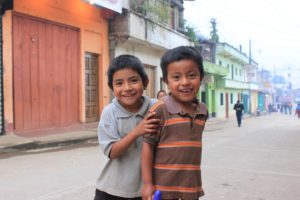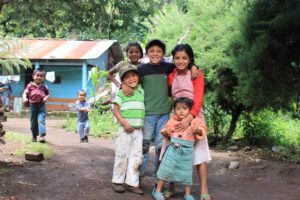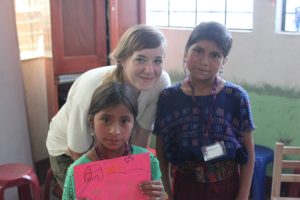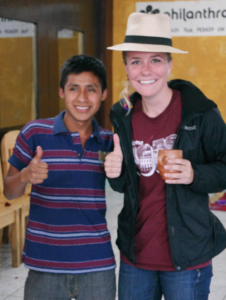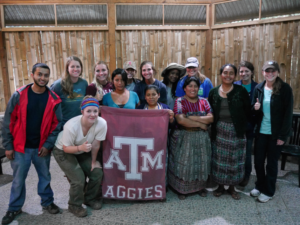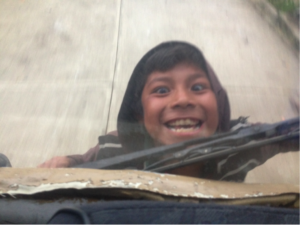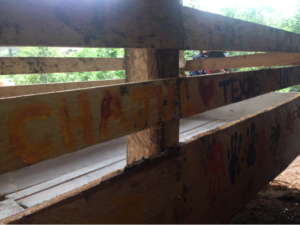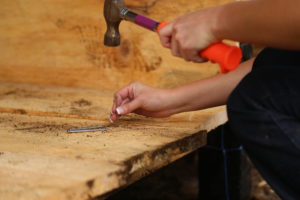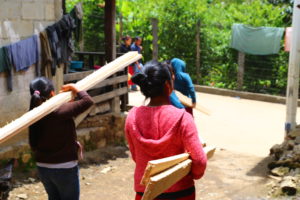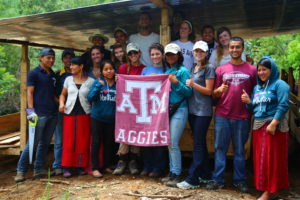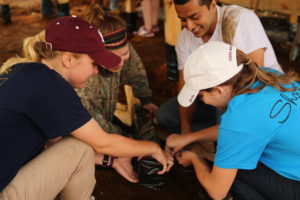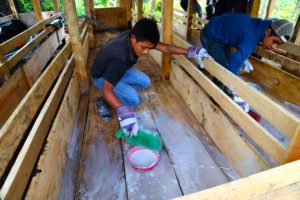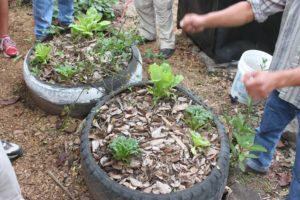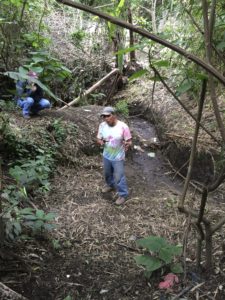When was the last time you held your sister’s or your mother’s hand? When was the last time you wrapped your arm around your brother’s or your dad’s shoulders? Was it during a time of sadness, comfort, or despair? In American culture it is quite common to leave a bubble of personal space around us nearly all the time. We may hug our relatives in greeting or departure if the time apart will be great; we may break the personal bubble to comfort one another. I want to know why we leave physical contact to these bleak, passing moments. While walking the streets of Guatemala, I consistently saw women of all ages holding hands with their family or friends walking next to them and frequently saw men walking with arms around each other in affable embrace.
Our American personal space is a negative one: it is put there to keep people out and to keep our distance from everyone, even the people we love. The Guatemalan personal space is a positive one: it is inviting, welcoming and forthcoming with love and acceptance. When seeing a Guatemalan woman again after our first meeting, I would be immediately welcomed with a hug and a kiss on the cheek. The children whom I could not even communicate with because they spoke only Ixil would still huddle around me, holding onto my arm, grasping my hand, tugging on my shirt, because they were not afraid to be in my so-called personal space and did not feel uncomfortable by having me in theirs. They were simply trusting, and they just wanted to be friends. Why is that so hard for us Americans to wrap our heads around?
Although I could not expect everyone who reads this to try to make personal changes based on my experience in Guatemala, I do hope that everyone takes a moment to open their minds to the possibility of being a little less selfish with our personal space. The Guatemalan culture is very people and relationship based and as such is a very happy, friendly, genuine culture. As a light-skinned foreigner in the land of Mayan descendants, I was welcomed nearly everywhere I went. I was welcomed with greetings of “Hola!” from the children, with curious smiles from the women, and with the occasional wolf whistle and “como te llamas” from the men. If you were to see a traditionally-dressed, Guatemalan family walking down the street in America would you welcome them as warmly? Would you acknowledge them at all? The only places I’ve been to in America that were that open and friendly to strangers were small towns, and they are a quickly-dying breed.
If I have learned nothing else from my experience in Guatemala, I hope I am able to teach to others and incorporate into my own life the openness and friendliness of the Guatemalan people. After all, strangers are friends you just have not met yet, so why not start meeting a few more? I would say one of the reasons we shy from talking to strangers is part of a defense mechanism to keep us safe from bad people, but the reality of the matter is that the vast majority of people are good and would reciprocate friendliness if given the chance. Humans are social creatures, and social interaction is meant to be organic, not technologic. Thus, I challenge you to put down your phone, put away your laptops and iPads, and speak to the person next to you. Give someone a compliment and make their day. What have you got to lose?
All pictures credit to Hannah Boyer, taken with a Canon EOS Rebel T1i.
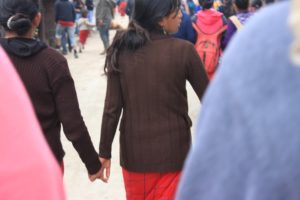
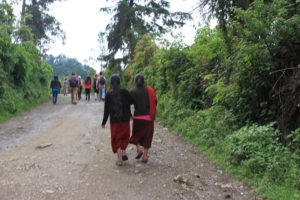 Chajulense women holding hands while walking down the street.
Chajulense women holding hands while walking down the street.